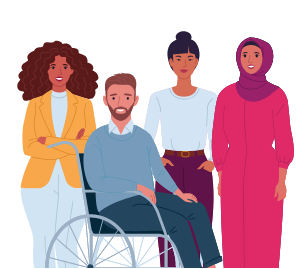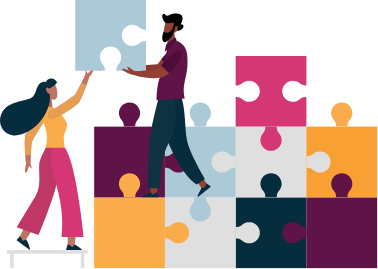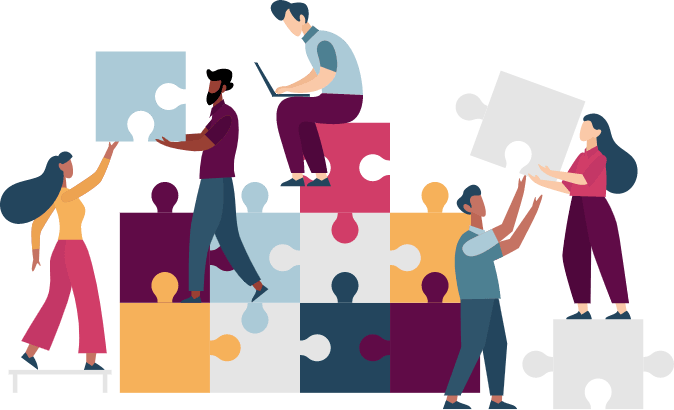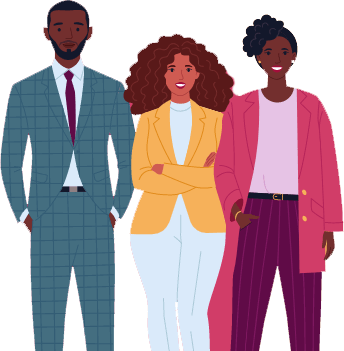Discover our ever growing collection of articles, case studies, resources, success stories, and more. Curated by the Ecosystem Partners, these resources are meant to inspire your 50 – 30 journey.
Courses
Make the most of these free courses, offered by CICan’s 50 – 30 Project team.
Inclusive leadership
in the Non-Profit Sector

Inclusive Leadership (Non-Profit Sector)
Are you a non-profit leader looking to deepen your EDI literacy? If so, this course is for you. Designed for busy professionals, this course explores how leading EDI practices can be embedded in non-profit leadership.
E-learning certificate and LinkedIn badge available upon completion.
Develop your equity lens

Inclusive Leadership (Cross Sector)
This course will equip you with actionable insights to immediately impact EDI practices in your workplace. Dive into practical tools and hands-on case studies from real Canadian companies, ensuring you’re prepared to put your newfound knowledge to work.
E-learning certificate and LinkedIn badge available upon completion.
Articles
Enhance your EDI knowledge with this collection of articles. Use the category tags to filter the results and find the subject matter most relevant to you .

The 50-30 Challenge: Your Diversity Advantage
Explore Egale Canada’s in-depth guides, actionable policy templates, and e-learning courses to help you throughout your journey of becoming a more inclusive,
Explore
Building a Successful DEI Strategy Requires More Than “Passion”
This article discusses the need for sustainable Diversity, Equity, and Inclusion (DEI) strategies in organizations, emphasizing a “STACKS” approach that includes systems
Explore
Elements of Inclusive, Anti-Oppressive Governance
This article shares elements to support good governance in the non-profit sector and can be a tool for ensuring that your organization’s
Explore
Social Location and Systems of Oppression
This article explores how understanding our own social location is foundational to understanding how individual and systemic bias/discrimination operate. Check out the
ExploreEvents
Learn more about upcoming events.
Videos
Watch our webinars
NLC Testimonial from Jessie Drew
WatchMy Little Unicorn: The Magic of the Gender and Sexual Spectrum
In this video we will discover the gender and sexual spectrum. Passcode: 1+d*Ir3G
WatchRising to the Challenge: Workplace Equity, Diveristy and Inclusion
This 60 minute webinar discusses the special relationship Canada has with First Nations, Inuit and Métis peoples and how to sustain EDI best practice in your organization
WatchResources
Browse our resources
Interactive Capsules
The interactive modules on the IRIPI website cover topics related to Equity, Diversity, and Inclusion (EDI). They include:
- Introduction to EDI
- What is Equity?
- What is Diversity?
- Diversity and Intersectionality
- What is Inclusion?
- Creating an Inclusive Workspace: Recruitment and Hiring
- Inclusive Workspaces: Onboarding, Retention, and Thriving
- Equity in the Canadian Context
- Racism and Systemic Discrimination
- These multimedia web-based animations aim to educate and promote understanding of EDI principles.
For more detailed information, you can visit the IRIPI interactive capsules page.
Read More“Tu n’as pas l’air d’être autochtone” et autres préjugés
Feuillet déconstruisant plusieurs préjugés sur les personnes et communautés autochtones.
Read More